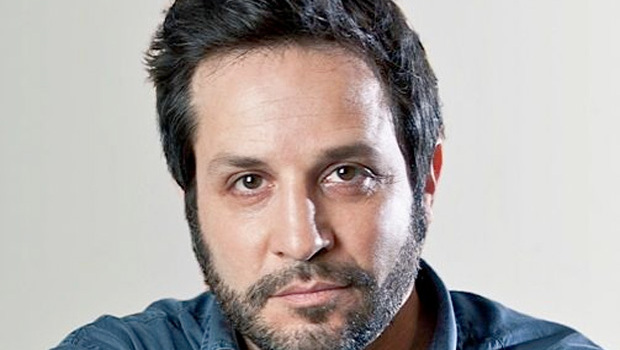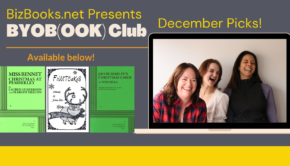The Biz Interview: Ben Ratner – Writer and Director of Down River
Ben Ratner is the writer and director of Down River, which is now playing in Vancouver and Toronto. We spoke with Ben to find out more about the film.
What themes and ideas do you want the audience to think about from watching the film?
I want them to think about the importance of mentors and friends … about overcoming fear in order to achieve your goals and live a fulfilling life … about how hard it is to be an artist, especially, in many cases, a woman artist, and that talent isn’t enough, it takes endless perseverance … about how fleeting life can be … about embracing life despite the hardships we all face … I want artists and lonely people and sick people and broken people to know they’re not alone in their suffering … that kinda stuff! Ultimately, the film is about overcoming fear in order to live your life as fully and as fruitfully as possible. And the importance of mentors to help point us in the right direction when we are adrift.
What was the most challenging sequence for you to film?
Shooting the scene with Harper singing to Molly in The Cobalt was almost the end of me. Smoke machine giving me massive headache, making me nauseous, tons of extras, not enough food or water for them, live music blasting all day, a massive shot list … I has hanging by a thread. But we got it all done and it’s one of my favorite sequences in the film. Larry Lynn, our DP did a fantastic job lighting it, and the gals’ performances were excellent. There’s a photo of me on the cover of the Reel West magazine issue that contains my director’s diary that was taken that day, and if you look closely at my eyes, it looks like I’ve been kicked in the head by a horse.
Which steps can directors take to build positive working relationships with their cast and crew during the making of a film?
Something I learned from Babz Chula: treat everyone the same. From PA to Executive Producer, they all deserve respect (as long as they give it to you, that is). Don’t suck up to people and don’t let anyone treat you like shit. Create a family. The film is the baby. The Producer is the Daddy. The director is the Momma. The rest of the cast and crew are big brothers and big sisters, helping to take care of the baby. As far as the cast goes, treat the actors as individuals — everyone has different needs. There’s some good basic tools, but there’s no instructions or manual. You have to use your intuition, moment to moment and learn as you go. Don’t try to come up with things to say if there’s nothing useful to be said. Some actors need space, some need a hug, figure out which kind you are dealing with, and know that these traits may change day by day or even scene by scene.
You have also done a lot of acting. What inspires you to direct?
I like telling my own stories and I like feeling like I’m in control. As a kid I always felt loved, but I didn’t feel safe. Directing creates the illusion of control, and with that comes something that feels like safety. I once read that George Clooney said, “The director is the painter, the actor is the paint.” I think that’s an oversimplification in many cases, and doesn’t give the actors their due, but there’s a lot of truth to it. And I don’t like small talk. On film sets there’s a lot of small talk because things take a long time to set up. I like keeping busy. I like doing shit. The director is always busy.
Are there any authors or specific books that have been influential in your development as a filmmaker and actor?
Too many to mention. I read a lot — fiction and non fiction, biographies, plays … and when I meet truly literate people, I am always a bit embarrassed by how much I have not read. There’s just not enough time to read all the great works out there. Here’s a few good reads for filmmakers: The Second Circle by Patsy Rodenburg is one I am reading now and getting a lot out of. The Power of The Actor by my mentor, Ivana Chubbuck. The War of Art by Steven Pressfield. Open Up or Shut Up by my very wise friend Barbara Deutsch. Kazan by Jeff Young. The Art of Dramatic Writing by Lajos Egri. And I must sheepishly admit that Save The Cat by Blake Snyder has helped me achieve clear, concise structure in several screenplays. It’s such a Hollywoodized, commercially-minded book, but the lessons are valid no matter what genre you are writing in. Certain things have always worked and always will. John Steinbeck is my favourite author of fiction. I have read everything he has written and every time I read his work, I feel like I understand what it means to be human a little more clearly.
What is the biggest obstacle facing independent filmmakers today?
There are so many films being made these days, that getting noticed has become incredibly challenging. Would Clerks be a huge smash if it was made today? I don’t know. You have to be really, really good and really, really smart, or at least really, really unique and you must work really, really hard, or the experience of making a film can be really, really disappointing. You better care about your film a lot, and believe in it, or you’ll be living a lie for years.
What advice would you give to aspiring actors and directors?
Act and direct as much as possible! Take classes and learn from people whose work you admire. Get out of the house and connect with other like-minded people as often as you can. Take chances. As the character Pearl says in Down River, “Fear is the enemy of Art.” I borrowed that from my teacher Ivana Chubbuck, who told me, “fear negates art.” Acting and directing ain’t for the weak or the meek. As Elia Kazan said, “You have to do something every six months that almost kills you.” That’s why I’m directing a play (White Hot) starting next month, and writing a new screenplay right now. Life is short. If you call yourself an artist, stop bragging about how much Netflix you watch and make a contribution!
Down River is now playing at Fifth Avenue Cinemas in Vancouver and at Cineplex Yonge & Dundas in Toronto.

















